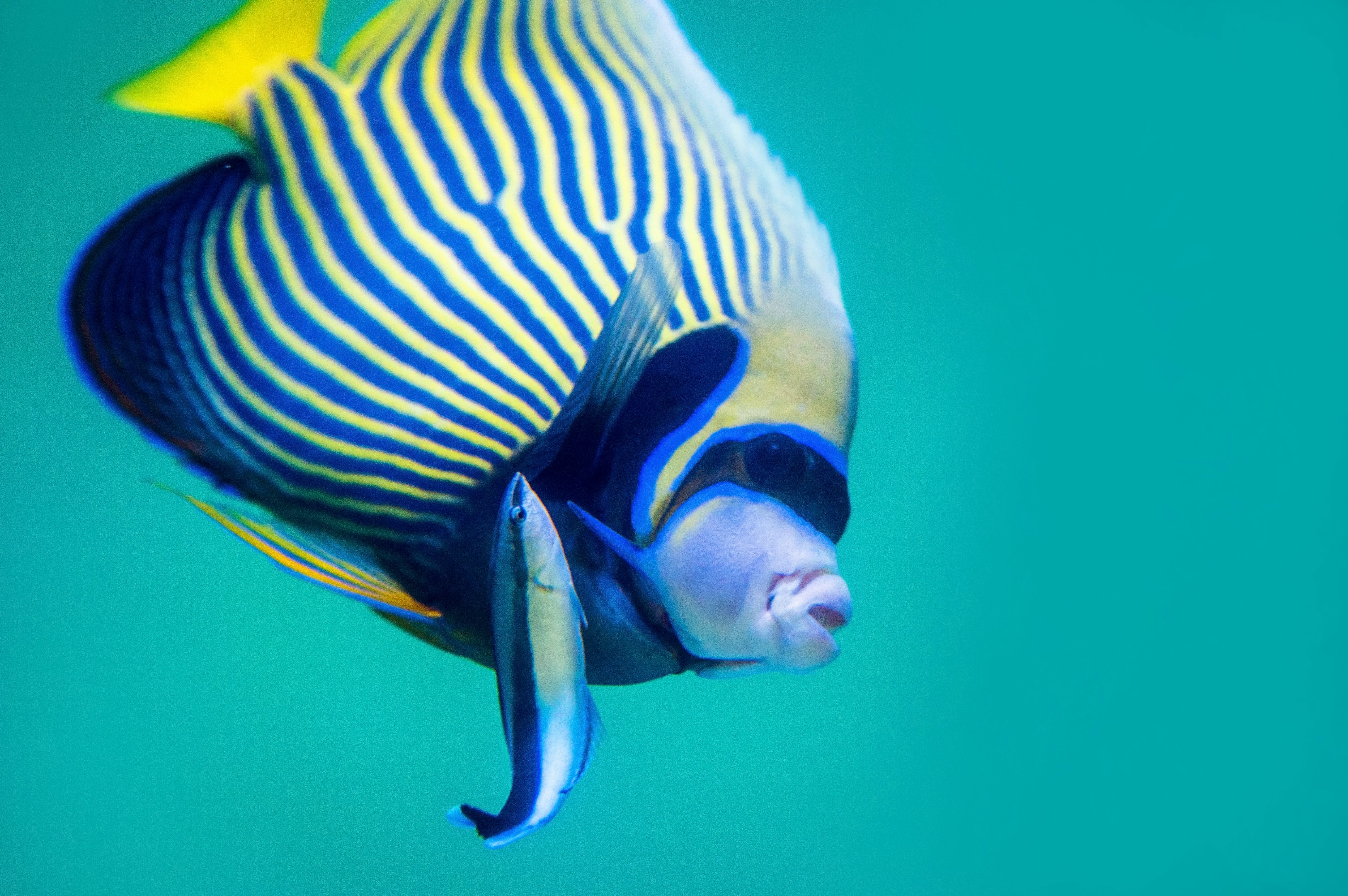Cleaner fish learn how to steal a little mucus snack by watching adults
Fish preferred to cheat a bit when given the choice
prilfish on Flickr
How do we learn when to cooperate, and when to cheat? It likely depends in part on the social interactions we observe growing up. Turns out that the same is true for cleaner fish (Labroides dimidiatus), according to a recent study.
Cleaner fish, also known as bluestreak cleaner wrasse, feed on ectoparasites found on other fishes — their “clients.” What cleaner fish really like to eat, however, is the protective mucus that covers their clients’ bodies. While eating ectoparasites is great for client fishes, cheating by eating mucus is bad. Client fishes will punish cheaters by fleeing, or by chasing the cheaters around.

Photo by David Clode on Unsplash
What’s the best option, to cheat and eat a brief but delicious snack (and risk being chased around), or to cooperate and eat a larger, peaceful, but not as tasty meal? A group of researchers led by Noa Truskanov, from the University of Neuchâtel, set out to understand how juvenile cleaner fish learn to answer that question.
In a series of experiments recently published in Nature Communications, Truskanov and her collaborators allowed juvenile cleaner fish to observe adults interacting with model clients. They then placed these juveniles in the same situations they had just observed, and tested if they copied the adult fish, learned from the adult fish, or behaved independently of what they had just seen.
Their results show that juvenile fish are actively learning to cooperate by observing the interactions of adult fish with their clients. Juvenile fish are more cooperative when client fishes are intolerant of cheating. When given the choice, however, they prefer clients who allow them to cheat a little. Juvenile fish also didn’t just imitate random adult preferences, showing that there are not copying, but rather learning.
Although both social learning and cooperation are widespread in nature, examples of animals that learn socially how to cooperate are extremely scarce. This leads us, humans, to erroneously assume that we are the only ones who learn to cooperate by observing others. Cleaner fish are putting us right back in our place: they can do it, too.